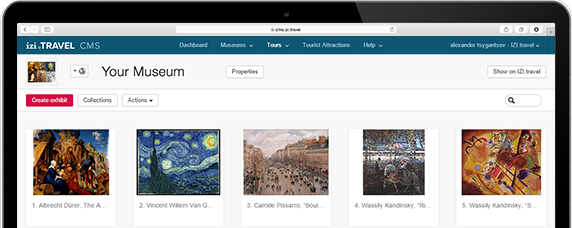Audio tour 'In Pursuit of Invisible Heroes and Heroines': The Role of Cultural
2 sights
- Audio tour Summary
-
Audio tour Summary
As part of the international Erasmus project, YOUTH INC. – Invisible Heroes, three
Hungarian groups are working to showcase local community figures who quietly work behind
the scenes every day to build society. One of these groups is led by Veronika Lajos and
comprises cultural anthropology students from the University of Miskolc, Hungary, including
three undergraduates and one postgraduate. The group's goal is to create a virtual memorial to
pay tribute to the invisible heroes of Miskolc.
A central question of the project is what it actually means to be a hero. This concept has
historically evolved and can be interpreted in many ways. While the group members could not
agree on a single definition applicable to all situations, they decided that they wanted to
honour individuals who build small communities in Miskolc on a daily basis. This led us to
recognise that practicing anthropologists, that is cultural anthropologists working in the civil
sphere, are invisible heroes themselves: through their work, they support the creation and
functioning of local communities by applying their cultural anthropological perspective and
knowledge.
We conducted in-depth interviews with practicing anthropologists in Miskolc, exploring their
life paths, professional commitment, and how their work and anthropological approach
contributes to understanding and solving local socio-cultural problems. The research team
quickly realised that, although often unknown to the wider public, these professionals perform
indispensable work. As reflective observers, interpreters and mediators, they play an active,
albeit often invisible, role in organising and building local communities.These interviews formed the basis of our virtual memorial. In a short, personal portrait, we
present the life and work of each anthropologist, touching on the key activities of the civil
society organisation. This illustrates what it means to be a practicing anthropologist today.
Conversely, we demonstrate how cultural anthropology can contribute to the exploration,
understanding, and development of long-term solutions to contemporary issues such as
community development, local cultural programmes, social awareness, attitude formation,
conflict resolution, and the fostering of a deeper understanding of one another and the world.
Our virtual memorial is a tribute to all the dedicated professionals — including
anthropologists, social workers, teachers and sociologists — who enrich community life in
Miskolc through their work. They help small communities to form and function, supporting
social cohesion. They are the invisible heroes who live among us, and we are giving you the
opportunity to get to know them.Semi-structured interviews with practicing anthropologists were conducted in March 2025 by
Antónia Koncz, Dávid Lajos, Veronika Lajos, Anna Szathmári and Szimonetta Szendi. - 1 Szilágyi Levente – Kinodomino
- 2 Király Réka - Dialóg
- 3 Darázs Richárd - Észak-Keleti Átjáró
- 4 Tamás Attila - Episztemé
-
Audio tour Summary
As part of the international Erasmus project, YOUTH INC. – Invisible Heroes, three
Hungarian groups are working to showcase local community figures who quietly work behind
the scenes every day to build society. One of these groups is led by Veronika Lajos and
comprises cultural anthropology students from the University of Miskolc, Hungary, including
three undergraduates and one postgraduate. The group's goal is to create a virtual memorial to
pay tribute to the invisible heroes of Miskolc.
A central question of the project is what it actually means to be a hero. This concept has
historically evolved and can be interpreted in many ways. While the group members could not
agree on a single definition applicable to all situations, they decided that they wanted to
honour individuals who build small communities in Miskolc on a daily basis. This led us to
recognise that practicing anthropologists, that is cultural anthropologists working in the civil
sphere, are invisible heroes themselves: through their work, they support the creation and
functioning of local communities by applying their cultural anthropological perspective and
knowledge.
We conducted in-depth interviews with practicing anthropologists in Miskolc, exploring their
life paths, professional commitment, and how their work and anthropological approach
contributes to understanding and solving local socio-cultural problems. The research team
quickly realised that, although often unknown to the wider public, these professionals perform
indispensable work. As reflective observers, interpreters and mediators, they play an active,
albeit often invisible, role in organising and building local communities.These interviews formed the basis of our virtual memorial. In a short, personal portrait, we
present the life and work of each anthropologist, touching on the key activities of the civil
society organisation. This illustrates what it means to be a practicing anthropologist today.
Conversely, we demonstrate how cultural anthropology can contribute to the exploration,
understanding, and development of long-term solutions to contemporary issues such as
community development, local cultural programmes, social awareness, attitude formation,
conflict resolution, and the fostering of a deeper understanding of one another and the world.
Our virtual memorial is a tribute to all the dedicated professionals — including
anthropologists, social workers, teachers and sociologists — who enrich community life in
Miskolc through their work. They help small communities to form and function, supporting
social cohesion. They are the invisible heroes who live among us, and we are giving you the
opportunity to get to know them.Semi-structured interviews with practicing anthropologists were conducted in March 2025 by
Antónia Koncz, Dávid Lajos, Veronika Lajos, Anna Szathmári and Szimonetta Szendi.
Reviews
Download the free izi.TRAVEL app
Create your own audio tours!
Use of the system and the mobile guide app is free

